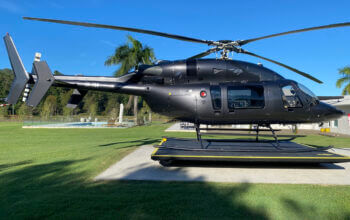The lack of ventilators available to hospitals during the coronavirus crisis has generated an abundance of finger-pointing and hand-wringing in political circles, news outlets, and social media spaces in recent months. But regardless of who’s to blame, the shortage is a problem, and many industries have been pivoting their workforces toward the manufacture of the vital machines.

These valiant efforts have produced strategies ranging from adaptations of existing products, repurposing of available parts, and the engineering of completely new designs. Vermont-based eVTOL developer Beta Technologies has joined the ranks of the latter with a new ventilator, called AutoVENT, that’s designed to be affordable, reliable, and easily used. Currently working its way through the U.S. Food and Drug Administration certification process, the device adapts readily available, hand-operated bag ventilators to a mechanical, computer-operated compression mechanism that automates the process as necessary.
Invented by Beta engineer Steve Arms, the original prototype used parts from the company’s inventory of scale-model aircraft components, including servos and speed regulators. It evolved quickly thanks to Beta’s rapid-prototyping capabilities and the team of engineers who contributed, most of whom mostly worked remotely on the project.
According to CEO Kyle Clark, the effort was a no-brainer. “It’s all about wanting to meet a pointed need, and then taking all the extra stuff out of the design along the way,” he said. “The lungs don’t need a lot — they need air and a little oxygen, and it has to be very gently handled. That’s our requirement. That’s the equivalent of our 250 miles of range for our aircraft.”
The team collaborated with physicians at the University of Vermont Medical Center to ensure it functioned properly and met their needs, and it tapped advisors Martine Rothblatt, CEO of pharmaceutical firm United Therapeutics and Beta’s first investor, and inventor Dean Kamen, who specializes in medical-tech innovation, to help guide them through the certification process.
The final product uses 35 parts, including a single circuit board and a variety of machined, injection-molded, and thermoformed pieces. It’s controlled via smartphone, eliminating the need for — and cost of — a permanent, built-in screen. Clark says the team worked deliberately to keep the complexity low and the ease of operation high, something that will be particularly important if the ventilators are needed in developing nations that the virus might move into next. “It’s to the point now that we created a like a Lego-like instruction manual so it can be sent out as an easy-to-build kit,” Clark said. “It’s so simple that anybody can put it together.”
According to Beta operations director Tom O’Leary, AutoVENT will be manufactured for less than $500 — ventilators typically cost upwards of $15,000 — and the company is working with on-demand manufacturing specialist Protolabs to produce units. The device can also be readily stored for long periods, he added, making it ideal for emergency-management preparations.









Fantastic effort guys,this is what humanity should be all about